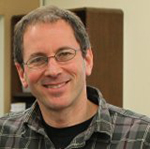People often feel draggy the day after they have to set their clocks forward in the spring but often shrug off that feeling as trivial. In fact, says Erik Herzog, PhD, a neuroscientist at Washington University in St. Louis, who studies biological clocks, jamming our biological clocks into reverse, as daylight savings time does, has serious consequences.

“Daylight saving time does not seem to help conserve energy, one of its original goals. Instead, the evidence is that the one hour advance of our wall clocks each spring is associated with statistically higher rates of traffic accidents over the following three days and heart attacks over the following two days,” Herzog said.
Herzog’s website, “Timing is Everything,” can be found at: http://wustl.edu/herzog
Herzog is available for interviews. He can be reached at (314) 935-8635 or (314) 935-5214; and by email at herzog@wustl.edu.